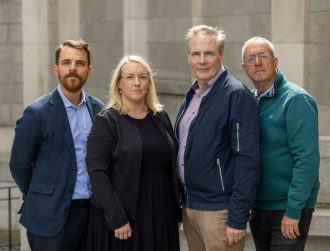Researchers at three Dublin universities have been awarded a share of €684 million in funding from the European Research Council (ERC) for its latest round of Synergy Grants. This significant financial boost is aimed at fostering collaboration among outstanding researchers and advancing scientific discovery.
Competitive Grants Support Innovative Research
Among the 239 recipients selected from a highly competitive pool, researchers from University College Dublin (UCD), Trinity College Dublin, and Dublin City University (DCU) will receive approximately €10.3 million each for their six-year projects. The ERC reported that only about one in ten proposals was successful in this funding round.
The Synergy Grants focus on enhancing collaboration between researchers in teams of two to four principal investigators (PIs). At least three PIs must be based in EU member states or associated countries. Notably, over 40 percent of funded projects this year included a PI from outside the EU, indicating a shift towards more international collaboration.
Women represent 25 percent of researchers involved in these winning projects, highlighting the ongoing need for greater gender representation in scientific fields. ERC president Prof Maria Leptin remarked on the competitive nature of the grants, stating, “The competition was fierce, with many outstanding proposals left unfunded.”
Groundbreaking Projects Address Critical Issues
Among the awarded projects, UCD’s Prof Anding Zhu and Prof Bogdan Staszewski are part of the international initiative called ‘Disrupt.’ Led by Prof Leo de Vreede from TU Delft, this project aims to develop fully digital radio-frequency (RF) power architecture, potentially reducing wireless network emissions by up to 50 percent. The team emphasizes that emissions from wireless networks are comparable to those from aviation, currently accounting for 2-3 percent of global carbon dioxide emissions. With the rise of 5G and 6G systems, this figure is expected to increase significantly.
Prof Zhu, who leads the RF and Microwave Research Group at UCD, expressed that receiving the ERC grant acknowledges the “bold and interdisciplinary vision” of their project. He noted, “This €10 million grant empowers us to push the frontiers of wireless technology by combining advanced materials science, semiconductor device innovation, and RF system architecture in a truly transformative way.”
Prof Staszewski, also from UCD, highlighted his ongoing journey in research, noting that this grant builds on his previous ERC Starting Grant, allowing him to tackle even greater challenges in radio-frequency power levels.
DCU’s Prof Yvonne Daly and Trinity’s Prof Shane O’Mara are collaborating on the ‘Justice’ project, which seeks to reform interrogation practices by combining expertise from law, psychology, neuroscience, and data science. This interdisciplinary team aims to investigate coercive and abusive interrogation techniques to develop more humane and effective interviewing methods.
Prof O’Mara, who leads the project, explained, “Justice is about moving from confession-seeking to truth-seeking.” The team aims to enhance public trust and ensure that interrogation techniques protect the rights of individuals while also obtaining reliable information.
In response to the funding announcement made on November 6, 2023, Ekaterina Zaharieva, European Commissioner for Start-ups, Research, and Innovation, emphasized the international nature of this year’s awardees, stating, “Europe’s frontier research has never been so international.” She noted that such global collaboration strengthens European science and provides researchers access to world-class expertise.
The ERC’s Synergy Grants represent a crucial investment in transformative research that addresses pressing global challenges. As these Dublin universities embark on their ambitious projects, the potential for meaningful impact in both technology and justice remains high.







